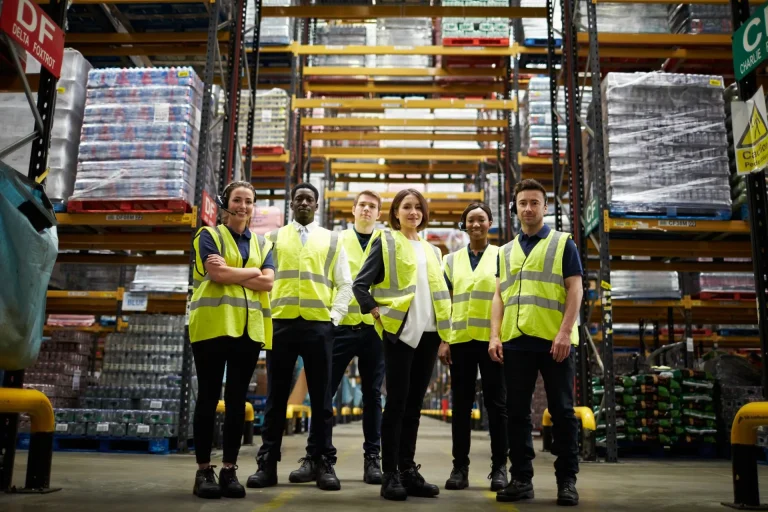Healthcare Jobs In Australia with Visa Sponsorship For Immigrants
Australia’s healthcare sector is among the most rapidly expanding industries due to the country’s aging population and increasing demand for healthcare services. This growth presents a significant opportunity for skilled immigrants, as Australia actively seeks healthcare professionals across various specializations, such as nursing, allied health, and aged care. With a wide range of job roles and attractive compensation, Australia has become an appealing destination for immigrants looking to establish a stable career in healthcare. Additionally, visa sponsorship options make it easier for international healthcare workers to obtain legal work permits, allowing them to live and work in Australia.
For those considering healthcare roles in Australia, understanding the qualifications, skills, and requirements needed to secure a sponsored position is essential. This article explores the essential information for immigrants seeking healthcare jobs in Australia, including the skills and experience required, high-paying regions, companies that hire internationally, visa options, and the application process. With this information, immigrants can better navigate the healthcare job market and position themselves for success in Australia.
Entry-Level Skills and Experience Required For Healthcare workers In Australia
The requirements for healthcare jobs vary depending on the specific role, but entry-level skills typically include:
- Relevant Educational Background: Healthcare jobs generally require formal education. For instance, nursing roles require a Bachelor of Nursing, while allied health roles may need specific diplomas or certifications.
- Clinical Experience: Practical experience, whether through internships, clinical rotations, or prior work experience, is highly valued in healthcare roles.
- Basic Life Support (BLS) and Advanced Cardiovascular Life Support (ACLS): Certifications in BLS and ACLS are common prerequisites for roles that involve patient care.
- Communication Skills: Strong communication skills are essential, as healthcare workers frequently interact with patients, families, and other professionals.
- Cultural Competency: Awareness and sensitivity to cultural diversity are crucial, particularly in Australia’s multicultural environment.
- Registration with Relevant Boards: Some professions, such as nursing or physiotherapy, require registration with Australian regulatory bodies, such as the Australian Health Practitioner Regulation Agency (AHPRA).
Regions with the Highest Payment Structures In Australia
Certain regions in Australia offer higher pay rates in healthcare to attract and retain skilled workers. Here are the top five regions with the best payment structures:
- New South Wales (Sydney): Sydney offers high wages for healthcare roles, with annual salaries for registered nurses ranging from AUD 65,000 to AUD 85,000, depending on experience.
- Victoria (Melbourne): Healthcare professionals in Melbourne earn competitive salaries, ranging from AUD 63,000 to AUD 82,000 for mid-level healthcare roles.
- Queensland (Brisbane): In Brisbane, salaries for healthcare professionals are approximately AUD 60,000 to AUD 80,000, influenced by demand in both public and private facilities.
- Western Australia (Perth): Western Australia offers salaries ranging from AUD 58,000 to AUD 78,000, with additional incentives for those in remote healthcare roles.
- South Australia (Adelaide): Healthcare professionals in Adelaide can expect salaries from AUD 57,000 to AUD 75,000 annually, with growing demand for nurses and allied health workers.
Salary Expectations for Immigrants In Australia
| Region | Average Annual Salary (AUD) | Key Insights |
|---|---|---|
| New South Wales | $65,000 – $85,000 | Highest salaries in metropolitan areas |
| Victoria | $63,000 – $82,000 | Competitive pay in urban and regional areas |
| Queensland | $60,000 – $80,000 | Demand-driven pay in healthcare facilities |
| Western Australia | $58,000 – $78,000 | Includes incentives for remote roles |
| South Australia | $57,000 – $75,000 | Growing demand in nursing and aged care |
Summary: Salaries for healthcare jobs in Australia range from AUD 57,000 to AUD 85,000 depending on location, experience, and specific roles. Metropolitan areas like Sydney and Melbourne offer higher pay due to increased demand and cost of living.
Companies Hiring Healthcare Workers In Australia
Several organizations and healthcare providers in Australia offer jobs to immigrant healthcare professionals, often with visa sponsorship options:
- Healthscope: Requires relevant qualifications and AHPRA registration; sponsorship offered for experienced healthcare professionals.
- Ramsay Health Care: Prefers candidates with prior experience in clinical roles; sponsorship available for specialized positions.
- Australian Unity: Seeks healthcare workers with certification in aged or disability care; sponsorship may be available for roles in high demand.
- Opal Healthcare: Requires a Certificate III or IV in Aged Care or similar; offers sponsorship for skilled international workers.
- Sonic Healthcare: Prefers medical technologists and laboratory professionals; may sponsor for roles requiring specific qualifications.
Visa Types and Options for Healthcare Workers In Australia
Immigrants aiming for healthcare jobs in Australia have several visa options available:
- Temporary Skill Shortage (TSS) Visa (Subclass 482): Allows skilled healthcare professionals to work in Australia for up to four years. The TSS visa requires sponsorship from an approved Australian employer.
- Skilled Nominated Visa (Subclass 190): A permanent visa for skilled workers who are nominated by an Australian state or territory.
- Employer Nomination Scheme (ENS) Visa (Subclass 186): This visa offers a pathway to permanent residency for skilled workers nominated by their employer.
- Skilled Work Regional (Provisional) Visa (Subclass 491): A five-year visa for skilled workers nominated by a state or territory, intended for those working in regional areas.
- Working Holiday Visa (Subclass 417): Available to young people from eligible countries, allowing them to work in Australia on a temporary basis; suitable for short-term healthcare roles.
Where to Find Healthcare Job Opportunities In Australia
Several platforms can help immigrants find healthcare job opportunities in Australia:
- Online Job Portals: Websites like SEEK, Indeed, and Jora frequently list healthcare jobs with sponsorship opportunities.
- Healthcare Provider Websites: Many healthcare organizations, including Ramsay Health Care and Healthscope, post available roles on their official websites.
- Recruitment Agencies: Agencies such as Healthcare Australia specialize in placing healthcare professionals in roles across Australia.
- Government Job Boards: The JobActive site managed by the Australian Government provides a range of job listings, including healthcare positions.
- Professional Associations: Joining associations such as the Australian Healthcare and Hospitals Association (AHHA) can provide networking opportunities and job leads.
How to Apply for Healthcare Jobs as an Immigrant In Australia
Here are the steps to secure a healthcare job with visa sponsorship in Australia:
- Complete Necessary Certification: Ensure you have the required certifications, such as a Bachelor of Nursing or relevant diploma, and any Australian-specific requirements.
- Register with AHPRA: If applicable, register with the Australian Health Practitioner Regulation Agency, especially for roles like nursing and allied health.
- Update Your Resume: Highlight relevant experience, certifications, and skills that make you a strong candidate for healthcare roles in Australia.
- Look for Sponsorship-Eligible Roles: Filter job searches on portals to focus on positions offering sponsorship options.
- Directly Contact Employers: Contact hospitals and healthcare providers directly to express interest and inquire about sponsorship possibilities.
- Complete Skills Assessment: If required for your visa, undergo a skills assessment to verify your qualifications align with Australian standards.
- Prepare for Interviews: Be prepared to discuss your experience, training, and how you would contribute to Australia’s healthcare sector.
- Apply for the Visa: After receiving a job offer, collaborate with your employer to apply for the appropriate visa through the Department of Home Affairs.
Conclusion
The healthcare industry in Australia offers promising career opportunities for immigrants seeking stable and rewarding roles. By understanding the required skills, regional salary expectations, and visa options, foreign healthcare workers can successfully navigate the application process and begin a fulfilling career in Australia. With demand at an all-time high, securing a healthcare role in Australia not only provides financial stability but also the chance to make a meaningful impact on the well-being of individuals and communities.






